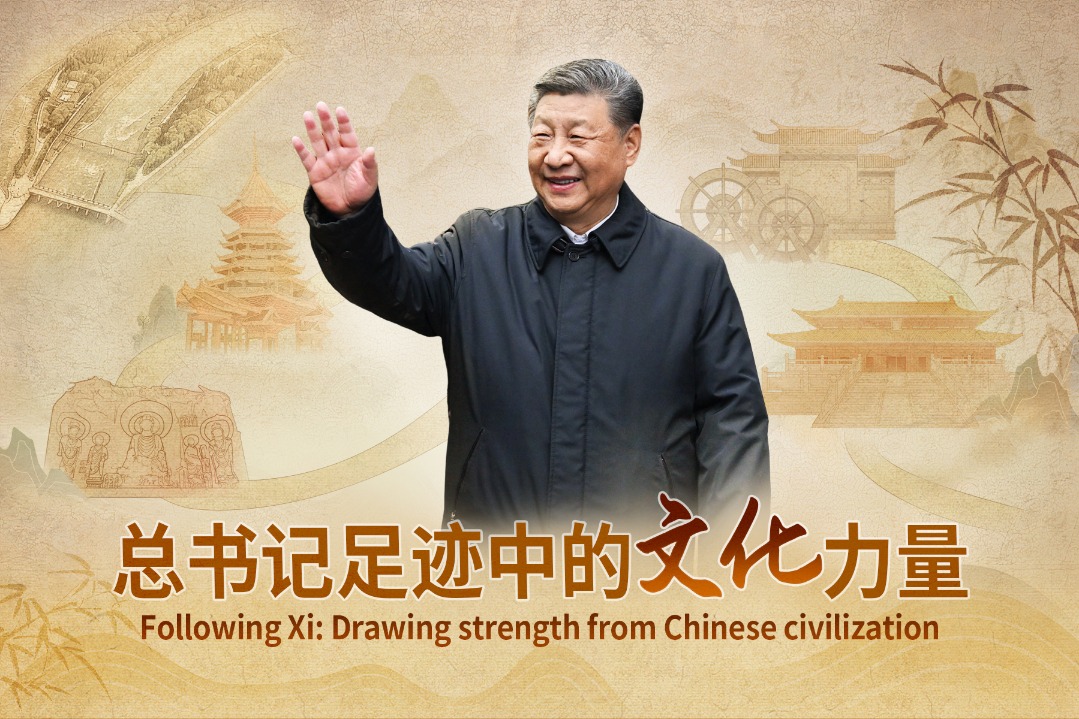Seeds of revolution sown on the farm

Investment and technology transfer have the potential to bring great changes in Africa
China's new going-out policy will intensify its economic ties with Africa not only in trade but also in agriculture, in which there has been increasing joint activity in recent years.
Because of China's overseas investment, many accuse it of engaging in large-scale land grabs, especially in Africa.
But as an important aid donor and investor in Africa, China is not simply using Africa as a stepping-stone onto the global stage but helping it to eradicate hunger and poverty by introducing modern agricultural technology to the continent.
Figures from the Ministry of Agriculture indicate how much the two sides have achieved in agricultural exchanges. Over the past 60 years China has dispatched nearly 10,000 agricultural technicians to the continent and built about 240 agricultural projects, 140 farms and agricultural demonstration centers in 40 African countries.
In addition to offering training, production, and administrative and residential facilities, the centers help to draw on China's strong agricultural expertise by inviting Chinese experts to share their knowledge with local people to boost Africa's agricultural development.
Between 2009 and 2011, 16 Chinese agricultural technology teams were sent to 13 countries in which agriculture plays a significant role in the local economy, and experts from the teams trained 874 African agricultural technicians.
The adage of teaching people to fish rather than giving them fish holds true in the Sino-African relationship. Hybrid rice breeding, developed by Yuan Longping, known as the "father of hybrid rice", is a good example.
In an agricultural technology demonstration center that China set up in Tanzania, the average harvest of hybrid rice is as much as 9-12 tons a hectare, compared with 1.95 tons a hectare with local rice breeds.
During a regional workshop for an agricultural investment program in Mali, African agricultural experts suggested that African countries strive to spread Chinese hybrid rice growth technology to raise rice output, reduce rice imports, and ensure food security for African countries.
Investment is essential to agricultural growth. China has received significant foreign direct investment inflows in agriculture, from $600 million to more than $1.2 billion yearly between 1998 and 2008, and Africa will go through a similar process, becoming a hotspot for foreign agricultural investment.
Monsanto and Cargill, two corporate giants of agricultural products from the US, have been active in commodity trading, from cocoa and coffee beans to petroleum and food ingredient processing, in Africa.
McKinsey Global Institute estimates that the value of agricultural output in Africa, which has 60 percent of the world's uncultivated arable land, could rise from $280 billion in 2010 to $500 billion by 2020 and $880 billion by 2030.
Even though agriculture has long been an important part of China's foreign aid program, it is not a popular industry for Chinese to invest in, at least not yet.
A research paper from Standard Chartered Bank shows that of an estimated $67 billion of large-scale investments in Africa from 2006 to 2012, only $3.5 billion was invested in agriculture, and Chinese firms had leased about 100,000 hectares of land in Africa, much less than Indian and Middle Eastern companies.
Sound and sustainable agricultural cooperation between China and African countries needs to be based on both sides coming out ahead. A strong profit potential is the driving force for Chinese companies investing in African agricultural projects.
Yet most Chinese companies that have invested in Africa in things such as animal feed, rice and other agricultural products are producing mainly for the local markets in Africa.
The reason is that the high transport cost due to poor infrastructure means Chinese agricultural investors in Africa are not looking to export to China. So large investments will be needed to raise agricultural production and build rural roads.
China's agricultural move in Africa has indeed brought new, great investment to the agriculture of many countries and has the potential to change agriculture significantly on the continent.
The author is a senior analyst at Beijing Orient Agribusiness Consultant.
(China Daily Africa Weekly 06/28/2013 page9)
Today's Top News
- Poll findings indicate Taiwan people's 'strong dissatisfaction' with DPP authorities
- Xi emphasizes strong start for 15th Five-Year Plan period
- PLA drills a stern warning to 'Taiwan independence' separatist forces, external interference: spokesperson
- Xi, Putin exchange New Year greetings
- ROK leader's visit to help boost bilateral ties
- China's new plan, world's new opportunities






























